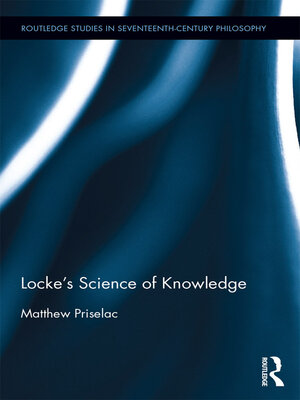Locke's Science of Knowledge
ebook ∣ Routledge Studies in Seventeenth-Century Philosophy
By Matt Priselac

Sign up to save your library
With an OverDrive account, you can save your favorite libraries for at-a-glance information about availability. Find out more about OverDrive accounts.
Find this title in Libby, the library reading app by OverDrive.



Search for a digital library with this title
Title found at these libraries:
| Library Name | Distance |
|---|---|
| Loading... |
John Locke's An Essay Concerning Human Understanding begins with a clear statement of an epistemological goal: to explain the limits of human knowledge, opinion, and ignorance. The actual text of the Essay, in stark contrast, takes a long and seemingly meandering path before returning to that goal at the Essay's end—one with many detours through questions in philosophy of mind, metaphysics, and philosophy of language. Over time, Locke scholarship has come to focus on Locke's contributions to these parts of philosophy. In Locke's Science of Knowledge, Priselac refocuses on the Essay's epistemological thread, arguing that the Essay is unified from beginning to end around its compositional theory of ideas and the active role Locke gives the mind in constructing its thoughts. To support the plausibility and demonstrate the value of this interpretation, Priselac argues that—contrary to its reputation as being at best sloppy and at worst outright inconsistent—Locke's discussion of skepticism and account of knowledge of the external world fits neatly within the Essay's epistemology.







